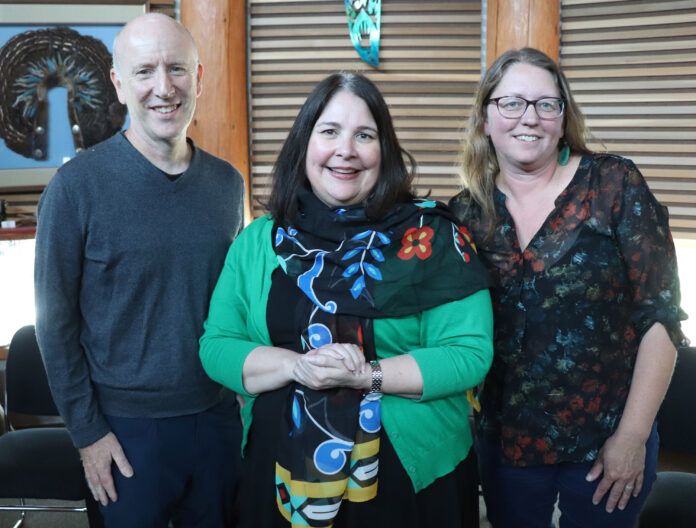Shared learning about Indigenous peoples and shared understanding about the legacy of colonialism is the focus of the 94 Days of Education and Action initiative that launched on June 29.
Building towards the National Day for Truth and Reconciliation that takes place on Sept. 30, Selkirk College is taking the regional lead on recognizing the impacts of the residential school system. Inspired by the 94 calls to action released by the Truth and Reconciliation Commission of Canada, the initiative provides opportunities for engagement, education and action over three months.
“It’s essential that we grow a collective understanding of what has happened in the past and the importance taking action in the present so that we can move forward to meaningful change in the future,” Maggie Keczan, the college’s director of communications and public engagement said in a news release.
“Selkirk College is strongly committed to Indigenization efforts and that is work we want to share with the entire community. This 94-day initiative gives us a chance bring opportunities for learning, reflecting and doing.”
The Truth and Reconciliation Commission ran from 2008 to 2015, providing an opportunity for those directly or indirectly affected by the legacy of the residential schools policy to share stories and experiences. The final report was issued in 2015 and detailed 94 calls to action. A federal statutory day of commemoration was Call to Action 80, and in 2022 the National Day for Truth and Reconciliation was introduced to the calendar on Sept. 30.
As part of ongoing Indigenization efforts and to build momentum towards the autumn date, a working group of Selkirk College employees from a cross-section of departments is providing several opportunities to learn and understand through the 94 Days of Education and Action. It’s part of a broader nationwide effort about observance, education and action.
In mid-June Selkirk College students and staff had a chance to gain deeper understanding about the ancestral home of the Sinixt at an engaging workshop presented by historian Laurie Arnold.
An enrolled citizen of the Sinixt band of the Colville Confederated Tribes, Arnold is a professor of history, director of Native American studies and the Robert K. and Ann J. Powers Chair of the Humanities at Gonzaga University in Spokane. Attended by more than 50 people at the Gathering Place on the Castlegar campus, Arnold spoke about her life’s research and led a discussion on how the geography of this region has created many challenges over the decades.
Former research director for the Truth and Reconciliation Commission of Canada; Dr. Paulette Regan, presented a workshop for employees that provided context of the commission’s framework to talk about how using “unsettling” or decolonizing principles, strategies and practices in one’s everyday life and work supports truth, justice and reconciliation. Regan’s online workshop was offered the day after historian Arnold’s in-person session.
“Both of these events were well attended and a great way to move into the official 94 days initiative,” says Keczan. “This is a difficult and challenging subject, but there is a real desire for those in our community to work toward fundamental change. It is very inspiring to see it being taken so seriously by so many individuals.”
Over the summer, the community is invited to join mini book clubs as part of Selkirk Reads!, which features book champions leading discussions about works written by Indigenous authors that explore themes of truth and reconciliation. Open to students, staff and the entire community, 10 clubs are now inviting participants who want to learn and engage.
More events and opportunities in the weeks ahead will build on the collective learning.




